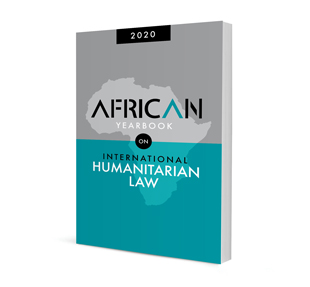
Addressing a selection of challenges faced at international courts and tribunals with jurisdiction over international crimes
Author: Mispa Roux
ISSN: 2521-2621
Affiliations: LLB LLM (International Law) LLD (International Law) (UJ); Senior Lecturer in the Department of Public Law, Faculty of Law, University of Johannesburg; Deputy Director of the South African Institute for Advanced Constitutional, Public, Human Rights, and International Law (SAIFAC), a Centre of the University of Johannesburg.
Source: African Yearbook on International Humanitarian Law, 2020, p. 44 – 77
https://doi.org/10.47348/AYIH/2020/a3
Abstract
One of the core characteristics of international crimes is that they are committed on a great scale; therefore, the sheer volume and complexity of evidence required to justify investigation and ultimately prosecution inevitably leads to several challenges. Since the first time that persons were held individually criminally responsible at an international level at Nuremberg and in the Far East, to the way in which the permanent International Criminal Court fulfils its mandate, investigating and prosecuting international crimes have involved manifold challenges. This article identifies three challenges faced by international criminal courts and tribunals in investigating and prosecuting international crimes. The first challenge is the investigation phase of international criminal proceedings, specifically the difficulty of selecting cases and identifying persons with the greatest responsibility for the crimes. The second challenge flows from the first, specifically in light of the magnitude of evidence indicating the required gravity to pursue further investigation and eventually prosecution. This raises the difficult question whether investigators, prosecutors, and judges are able to consistently comply with their duty to respect and protect the various fair trial rights to which suspected and accused persons are entitled. The third and final challenge that will be engaged with in this article relates to the formidable impact of international and political relations at all stages of investigation and prosecution of international crimes, which may ultimately thwart compliance with the obligation to prosecute international crimes.